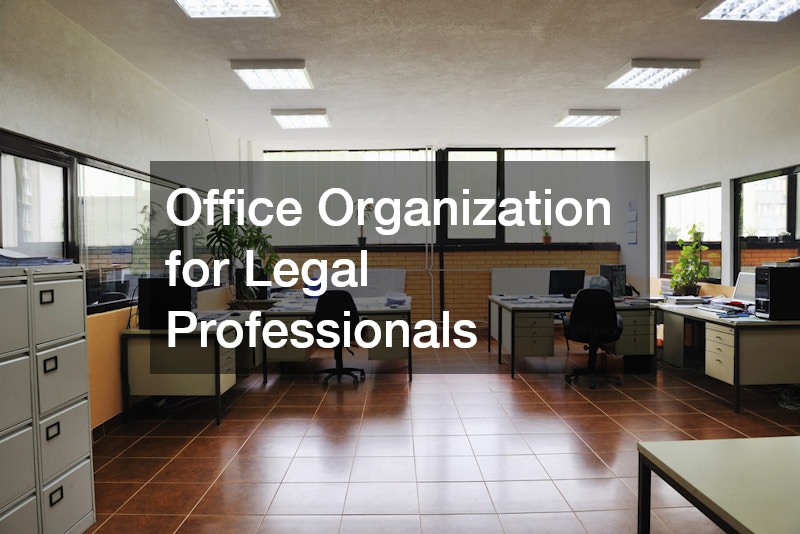Understanding proper legal terminology and facts is essential for anyone managing the challenges of the legal system. Legal matters can range from personal injury claims to real estate transactions, bankruptcy proceedings, and family disputes. Without a solid grasp of legal language, individuals may find themselves at a disadvantage, unable to protect their rights or make informed decisions. Legal knowledge empowers clients to work effectively with lawyers, understand contractual obligations, and follow the correct procedures for court filings, hearings, and settlements.
Lawyers, bail agencies, mortgage brokers, and other legal professionals play a critical role in guiding clients through these processes. Choosing the right legal representation, such as a personal injury accident lawyer, workers comp lawyer, or the best divorce attorney, ensures that cases are handled efficiently and fairly. Additionally, understanding the procedural requirements, like vehicle tag renewal or mortgage documentation, helps prevent costly delays or errors. From breakroom solutions in law offices to client consultations, every detail contributes to the seamless practice of law. This guide explores key legal terms and facts, highlighting the importance of accurate knowledge for successful legal outcomes.
Proper legal understanding also provides clients with confidence when engaging in negotiations or signing agreements. By knowing the implications of legal terminology and procedures, individuals can avoid inadvertent mistakes that could impact their cases or financial standing. Moreover, professionals who adhere to legal practices demonstrate credibility and integrity, which strengthens trust with clients, colleagues, and the public.
Finally, mastering legal concepts isn’t just for lawyers or legal experts; anyone interacting with legal systems benefits from awareness and education. Whether filing a personal claim, buying property, or handling family disputes, understanding legal terms and processes reduces uncertainty and empowers informed decision-making. This foundation prepares individuals to work seamlessly with professionals while protecting their rights and interests.
Navigating Personal Injury Cases

Personal injury cases often involve complicated medical evidence, insurance claims, and legal procedures that require authority guidance. A personal injury accident lawyer is trained to assess the nuances of these cases and advocate for the injured party. Understanding legal terminology is critical when documenting damages, negotiating settlements, or presenting cases in court. Misunderstanding these terms can result in missed compensation or procedural errors.
Clients should familiarize themselves with the stages of a personal injury case, including filing claims, gathering evidence, and dealing with insurance adjusters. Legal representation ensures that deadlines are met, forms are correctly completed, and damages are accurately calculated. Even minor mistakes in understanding legal terms can significantly affect the outcome of a case.
Additionally, a personal injury accident lawyer helps clients evaluate the value of claims by analyzing medical records, employment documentation, and accident reports. This process requires precise legal terminology to ensure courts and insurers fully comprehend the extent of injuries and losses. Proper legal communication also prevents misunderstandings that could otherwise delay settlements.
Education on legal rights and responsibilities is another essential aspect. Clients who understand how their case fits into broader legal frameworks can actively participate in their defense or claim process. Knowledge of legal procedures encourages cooperation with medical professionals, insurance adjusters, and lawyers, ultimately improving the likelihood of favorable results.
Understanding Workers’ Compensation Claims
Workers’ compensation cases involve benefits for employees injured on the job. A workers compensation lawyer guides clients through filing claims, understanding medical evaluations, and navigating employer reporting requirements. Knowing legal procedures ensures injured workers receive appropriate compensation for medical expenses, lost wages, and rehabilitation costs.
Employers also benefit from legal knowledge, as understanding obligations and deadlines reduces the risk of litigation. Workers’ compensation law requires a balance of legal awareness and practical application. From initial reporting to dispute resolution, having a skilled lawyer ensures the process runs smoothly and in accordance with state laws.
Furthermore, workers compensation lawyers educate clients on their rights to medical treatment, wage replacement, and occupational rehabilitation. Legal awareness helps prevent insurers or employers from minimizing claims unfairly. Detailed documentation, including accident reports and medical evaluations, is crucial to securing fair compensation.
Workers comp lawyers also assist with appeals when claims are denied. Understanding the legal language used in administrative hearings and court proceedings is vital. By having a lawyer who comprehends legal terminology, clients can pursue appeals effectively, ensuring that justice is served and benefits aren’t unjustly withheld.
Handling Motor Vehicle Accident Disputes
Motor vehicle accidents frequently involve property damage, bodily injury, and insurance claims. A motor vehicle accident lawyer helps clients understand their rights and obligations. Legal understanding ensures that accident reports, witness statements, and insurance communications comply with the law.
Negotiating settlements often requires knowledge of compensation limits, liability rules, and evidence collection. Mistakes in documentation or misinterpretation of legal terms can delay claims or reduce awarded compensation. Effective representation combines legal experience with thorough preparation, ensuring that clients are fully protected.
Clients should also be aware of the differences between no-fault and at-fault insurance systems. Legal knowledge enables them to navigate these distinctions, understand their responsibilities, and determine the most effective course of action. Motor vehicle accident lawyers clarify these aspects and help clients anticipate potential challenges.
Additionally, understanding the statute of limitations for filing claims is critical. Proper legal guidance ensures that all necessary documents are submitted on time, preventing claims from being dismissed due to procedural errors. Awareness of these timelines and processes reflects the importance of legal knowledge in achieving favorable outcomes.
Real Estate Transactions Made Clear

Real estate transactions are another area where legal understanding is essential. Real estate lawyers review contracts, verify property titles, and handle disputes related to sales or leases. Legal knowledge prevents costly mistakes, such as overlooking zoning restrictions, failing to disclose property defects, or misinterpreting mortgage terms.
Clients working with mortgage brokers also benefit from understanding the legal implications of loan agreements. Proper legal awareness allows buyers and sellers to navigate escrow processes, financing contingencies, and closing requirements confidently. In real estate, precision in language and documentation directly affects property ownership and financial security.
Real estate lawyers also play a crucial role in resolving disputes between landlords and tenants. From lease violations to property damage claims, understanding the legal procedures ensures that issues are resolved fairly and within statutory requirements. This knowledge helps both parties avoid protracted legal battles.
Additionally, knowledge of property tax obligations, easements, and land use restrictions is vital. Legal awareness ensures that buyers, sellers, and investors comply with all applicable regulations, reducing the risk of litigation or penalties. Real estate transactions demand careful attention to detail and precise use of legal terminology.
Bankruptcy Proceedings Explained
Bankruptcy can provide relief from overwhelming debt, but the process is highly regulated. Bankruptcy lawyers help clients understand filing requirements, debt schedules, and the differences between Chapter 7, Chapter 11, and Chapter 13 proceedings. Proper legal comprehension ensures that clients accurately report assets, liabilities, and income.
Incorrect filings can result in case dismissal or loss of discharge protections. Lawyers guide clients in negotiating with creditors, understanding exemptions, and maintaining compliance with court deadlines. Legal knowledge protects individuals and businesses seeking financial recovery from unnecessary complications or penalties.
Bankruptcy lawyers also assist clients in understanding the impact of bankruptcy on credit scores, future borrowing, and asset retention. Knowledge of legal procedures ensures informed decisions about restructuring debts or liquidating assets, minimizing long-term financial consequences.
Additionally, lawyers provide guidance on avoiding fraudulent claims or inadvertent misrepresentations. Legal experience ensures clients comply with federal and state laws, protecting them from potential legal action for filing inaccuracies. Bankruptcy is complex, and legal guidance is essential for successful resolution.
Divorce and Family Law Insights
Divorce cases involve emotional, financial, and legal challenges. The best divorce attorney ensures that clients understand property division, child custody, alimony, and related matters. Legal language helps individuals navigate negotiations and court filings without confusion or unintended consequences.
Understanding the steps in divorce proceedings, from filing petitions to attending hearings, is crucial. Accurate documentation and knowledge of procedural rules reduce the risk of disputes or delays. Legal expertise ensures fair outcomes while protecting clients’ rights during emotionally sensitive situations.
Family law lawyers also assist in drafting agreements and modifications for spousal support or parenting plans. Proper legal comprehension ensures that these agreements are enforceable and accurately reflect the intentions of both parties, reducing the likelihood of future conflicts.
Moreover, mediation and collaborative law processes require familiarity with legal terminology. Lawyers guide clients through these alternatives, ensuring that agreements reached outside of court are valid and equitable. Legal awareness facilitates smoother negotiations and promotes amicable resolutions.
Office Organization for Legal Professionals

Legal offices rely on efficient management systems, including breakroom solutions and document storage. Legal operations extend beyond courtroom proceedings to daily organizational practices. Breakroom solutions enhance employee efficiency, ensuring that lawyers and support staff can focus on client cases without distractions.
Organized workspaces improve workflow and reduce errors in handling sensitive documents, contracts, and filings. Proper legal management includes maintaining up-to-date records, following office protocols, and ensuring staff are trained in compliance and confidentiality. These operational measures support smooth legal practices.
Furthermore, well-planned office spaces can support client confidentiality and comfort. Breakroom solutions, private meeting areas, and document storage systems contribute to a professional environment that reflects legal standards. Employees are more productive, and clients gain confidence in the office’s professionalism.
Additionally, training staff in recordkeeping, document handling, and office compliance ensures consistency. Legal knowledge applied at every level of office operation minimizes errors and fosters accountability, which is vital for ethical and effective legal practice.
Administrative and Compliance Tasks
Tasks like vehicle tag renewal or filing with bail agencies may seem routine, but carry legal significance. Proper legal knowledge ensures that deadlines are met, forms are correctly completed, and penalties are avoided. Administrative compliance protects both individuals and businesses from fines or litigation.
Vehicle tag renewal, for example, is a legal requirement that, if neglected, can result in traffic citations or registration issues. Bail agencies must follow strict rules regarding client intake, custody, and recordkeeping. Legal awareness in these areas prevents avoidable errors and reinforces the importance of thorough procedural understanding.
Clients and businesses must also stay informed about changes in regulations. Legal ensures that administrative updates are implemented efficiently, reducing non-compliance likelihood. Lawyers and legal staff often provide guidance to navigate these updates.
Moreover, attention to detail in administrative processes demonstrates diligence and professionalism. Accurate filings, timely renewals, and compliance with agency rules reflect a commitment to legal procedures, strengthening trust and reducing potential legal liabilities.
Financial Services and Legal Implications
Mortgage brokers and financial institutions operate within a legal framework that affects loans, property sales, and debt management. Legal knowledge helps clients understand loan agreements, interest calculations, and repayment obligations. Working with knowledgeable brokers and lawyers reduces the risk of misinterpretation and financial disputes.
Legal awareness also applies to debt restructuring, lien placements, and foreclosures. Accurate documentation, disclosure, and adherence to regulations protect both clients and financial institutions from legal challenges. Integrating legal expertise into financial services ensures smoother transactions and reduced liability.
Understanding legal concepts enables financial advisors and brokers to advise clients accurately. By staying informed about regulatory requirements and compliance measures, they help clients avoid legal pitfalls while optimizing financial decisions.
Additionally, clients must recognize the importance of contracts, insurance clauses, and disclosure requirements. Proper legal understanding ensures informed decision-making, safeguards investments, and prevents costly disputes, creating a stable foundation for financial security.
Risk Mitigation and Legal Preparedness

Understanding the nuances of legal terms and processes equips clients to mitigate risk. Working with personal injury accident lawyers, workers’ comp lawyers, or real estate lawy, all possible issues are identified and addressed proactively. Proper legal knowledge minimizes exposure to litigation, fines, or contractual disputes.
Clients benefit from clear communication, comprehensive documentation, and proactive engagement with legal professionals. Lawyers advise on compliance, dispute resolution, and strategic planning. Proper legal awareness allows individuals and businesses to make informed decisions and avoid unnecessary complications.
Proactive risk management also involves reviewing contracts, agreements, and policies regularly. Lawyers trained in legal practices can spot potential issues before they escalate, helping clients protect their interests and avoid litigation.
Finally, incorporating legal protocols into daily operations strengthens organizational resilience. Understanding legal responsibilities and procedures prepares clients to respond effectively to unforeseen challenges and legal complexities, whether in personal matters, corporate settings, or financial dealings.
A firm grasp of legal terms and facts is indispensable for anyone involved in legal matters, whether personal, business, or financial. Navigating the legal system requires knowledge, accuracy, and the guidance of experienced professionals, including personal injury accident regulation adherence, vehicle accident lawyers, real estate lawyers, bankruptcy lawyers, and the best divorce attorney. Proper legal comprehension ensures that clients can protect their rights, comply with regulations, and make informed decisions in complex legal situations.
Administrative tasks, such as vehicle tag renewal or coordinating with a bail agency, underscore the importance of procedural awareness, while financial interactions with mortgage brokers demonstrate the critical connection between legal knowledge and financial security. Even seemingly minor details, like breakroom solutions in legal offices, contribute to the overall efficiency and reliability of legal practice.
